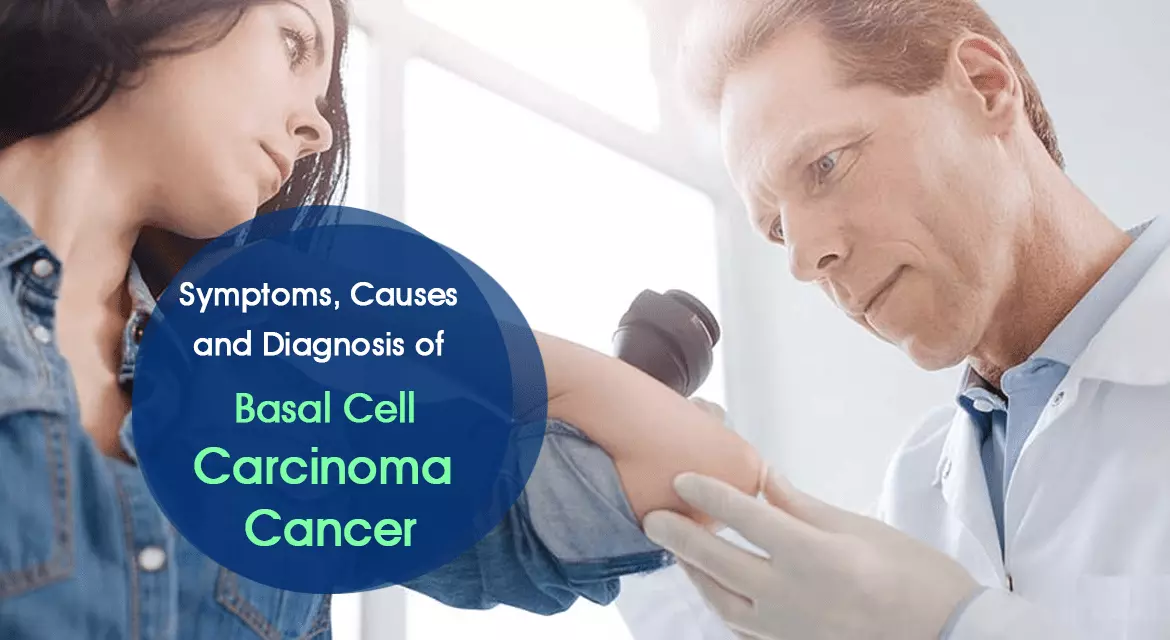Basal cell carcinoma Cancer
Basal cell carcinoma is one of the skin cancer types. It starts from the abnormality of the basal cells at the genetic level. In appearence, it presents as a slightly transparent bump on the surface of the skin, though it can take other forms. The most common cause associated with the risk of basal cell carcinomas is long-term exposure to ultraviolet (UV) radiation from sunlight
Symptoms of Basal cell carcinoma Cancer:
Basal cell cancer appears as a change in the skin, like an unhealing sore. These changes usually are the following:
• pearly white, skin-colored bump
• brown, black, or blue lesion
• white, waxy, scar
When to consult a doctor?: the immediate time to consult your doctor is as u see changes in the appearance of the skin, like a new growth, or a recurring sore.
CAUSES: when one of the skin’s basal cells develops a mutation in its DNA, basal cell carcinoma can occur. Well! the damage to genetic material in basal cells is due to the result of ultraviolet (UV) radiation found in sunlight that reaches the cells during prolonged exposure and in commercial tanning lamps and tanning beds, as well as per data reported in the literature.
Factors that increase the risk of basal cell carcinoma
• Chronic sun exposure
• Radiation therapy
• Fair skin
• Increasing age
• family history of skin cancer
• immune-suppressing drugs
• Exposure to arsenic
• Certain rare genetic diseases including nevoid basal cell carcinoma syndrome (Gorlin-Goltz syndrome), xeroderma pigmentosum.
What are complications associated with Basal cell carcinoma?
• These cancer commonly relapse, even after successful treatment.
• Their history also increases the chance of developing other types of cancer, such as squamous cell carcinoma.
• It can spread rarely
How can one reduce the risk associated with basal cell cancer occurrence?
• Avoid sun exposure during the day after 10.0 am till early eve as at this time sun hours are at peak
• Wear sunscreen
• Wear protective clothing
• avoid tanning beds
• immediately report changes to your doctor
GOLD STANDARD FOR DIAGNOSIS INCLUDES BIOPSY OF THE LESION
The targeted goal of its treatment it is to remove cancer completely-with following available alternatives:
1. Mohs surgery
2. Surgical excision
3. Curettage and electrodessication
4. Radiation therapy
5. Freezing
6. Topical treatments
7. Photodynamic therapy
8. Chemotherapy
9. targeted therapy
10. Immunotherapy
Also Read:




